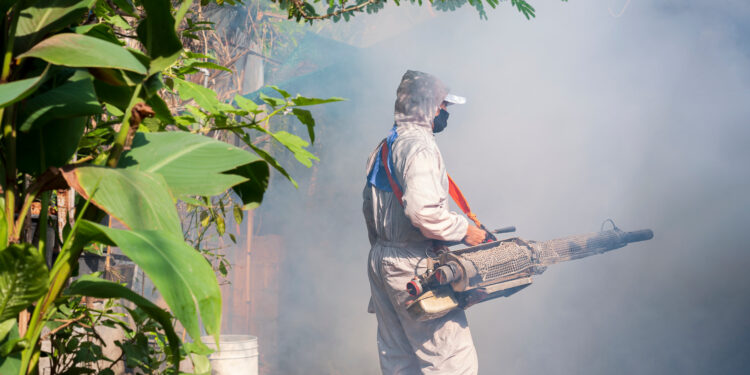The Centers for Disease Control and Prevention (CDC) has reported an alarming increase in dengue fever cases across the United States. With over 2,300 cases reported in 45 jurisdictions, including Puerto Rico, the risk of a dengue outbreak in the continental U.S. is becoming more imminent.
Dengue fever, transmitted by the Aedes species of mosquitoes, has surged globally, with over 10 million cases reported worldwide as of June 22nd, according to the European Union. The Americas have been particularly hard-hit, experiencing the highest incidence of dengue fever cases on record.
In the U.S., Puerto Rico has faced a significant outbreak, prompting the island’s health department to declare a public health emergency in March. As of late June, more than 1,500 cases had been reported in Puerto Rico, leading to upwards of 900 hospitalizations and two deaths. While most dengue cases in the continental U.S. have been travel-related, locally transmitted cases have been confirmed in Florida.
Dr. Peter Hotez, dean of the National School of Tropical Medicine at Baylor College of Medicine, highlighted the increasing vulnerability of the southern U.S. to dengue and other vector-borne diseases. “A multitude of factors related to both climate and socioeconomic conditions have led to parts of the southern U.S. becoming a likely hotspot for an outbreak of dengue,” he said.
New Jersey has also reported 41 cases of dengue among residents who traveled abroad. The CDC emphasized that the most common symptom of dengue is fever, which can be accompanied by muscle, bone, and joint pain, as well as nausea or vomiting. Severe cases can lead to internal bleeding, shock, and death if left untreated.
At the time of reporting, the U.S. states with reported dengue cases include California, Florida, Hawaii, New Jersey, New York, and Texas.
The rise in dengue cases can be attributed to climate change, urbanization, and poverty, which create ideal conditions for the Aedes mosquitoes. In low-income neighborhoods, tire dumping and dilapidated housing without air conditioning or adequate window screens exacerbate the problem.
Public health experts advocate for improved surveillance, diagnostic testing, and physician awareness to combat the spread of dengue. Regular mosquito trapping and testing, especially in high-risk areas like Texas and the Gulf Coast, are crucial. Additionally, making diagnostic testing more accessible and raising awareness among healthcare providers about the symptoms of dengue are vital steps in preventing an outbreak.
The U.S. must prepare for the possibility of dengue becoming endemic. Dr. Hotez stressed the importance of proactive measures, stating, “We need to be better prepared to do active surveillance in these communities and provide specialty training for healthcare providers.”
As the threat of dengue increases, it is essential for communities and individuals to take preventive measures and stay informed about the risks associated with this mosquito-borne disease.









